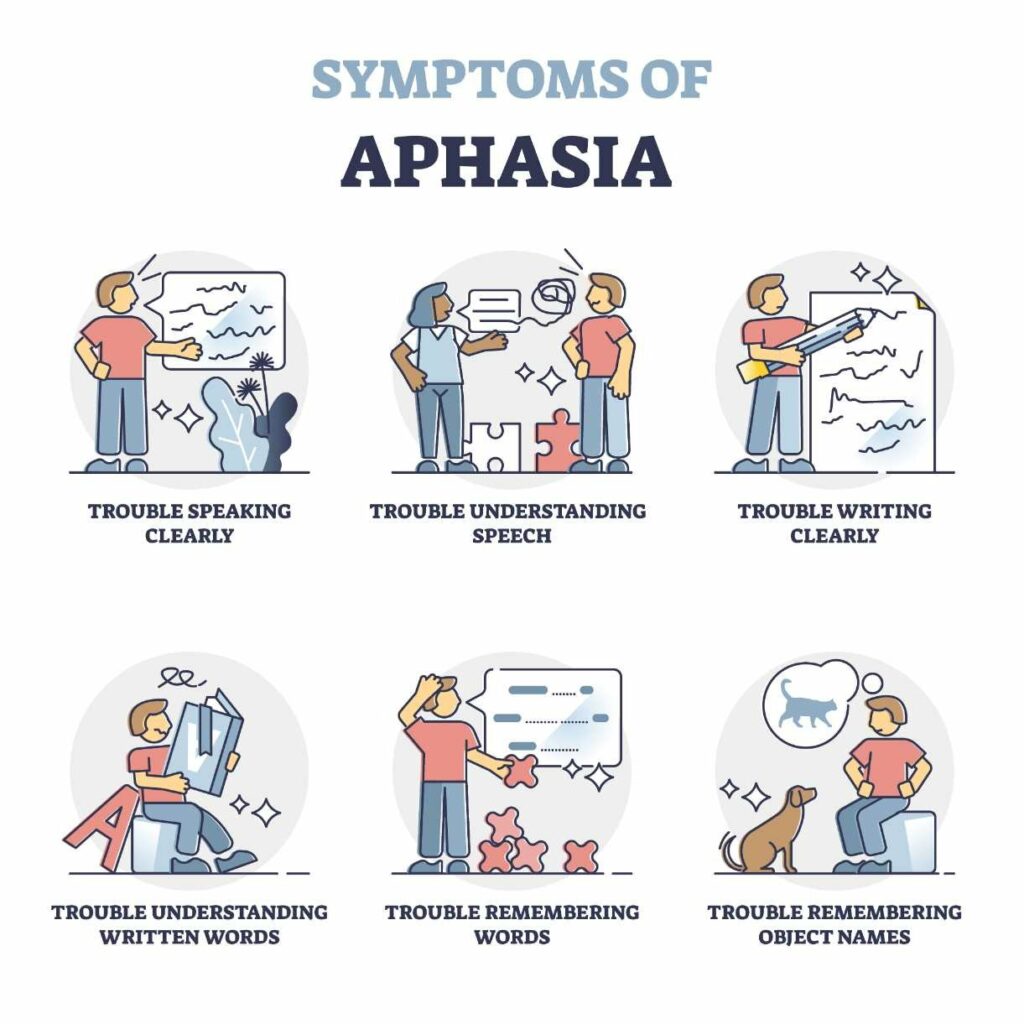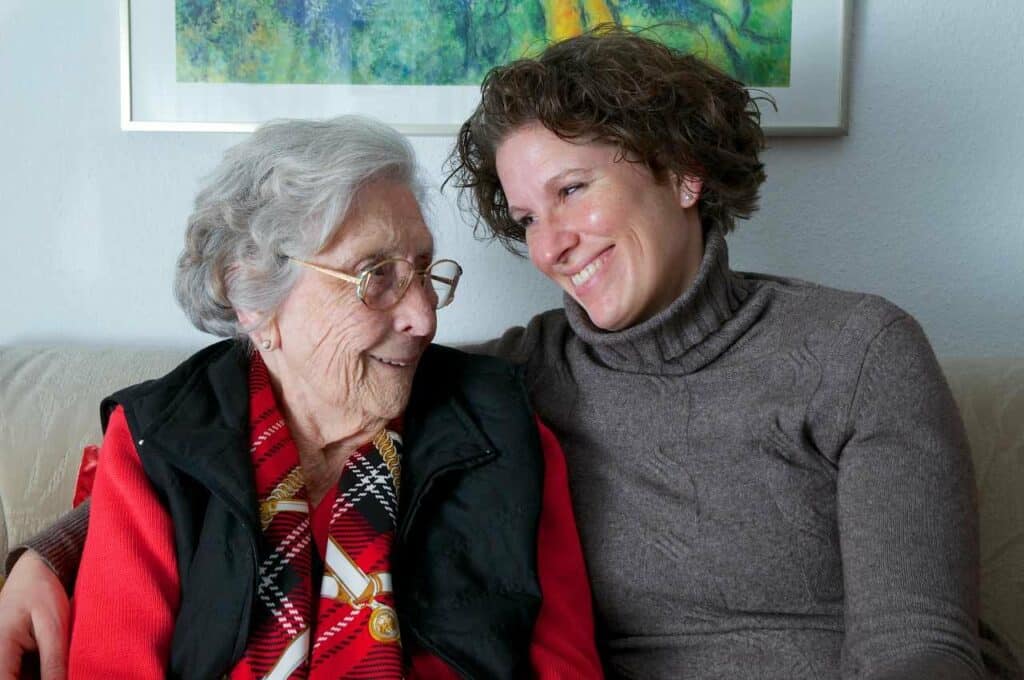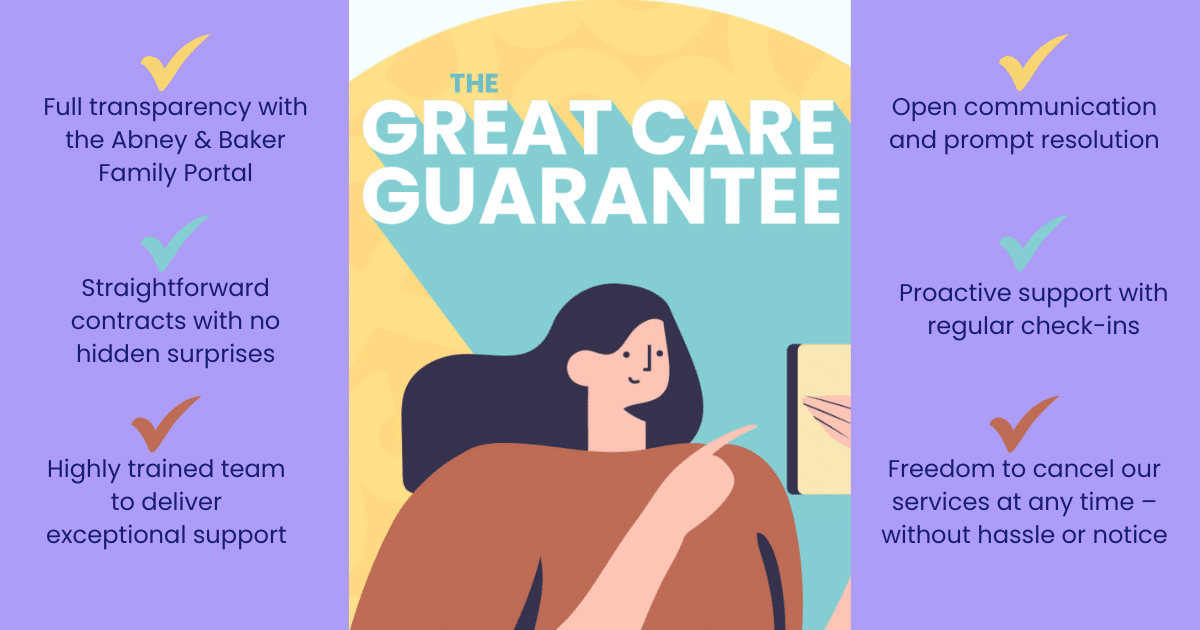Speech and language impairments are known as aphasia. In most people diagnosed with Alzheimer’s disease and other dementias, aphasia is eventually seen.
This syndrome affects the nervous system and hinders the affected individual’s ability to communicate. It can make it difficult for them to express their thoughts and understand or find words.
Symptoms of aphasia begin over the age of 65 and get more severe over time. People with primary progressive aphasia can lose the ability to speak and write, and eventually understand written or spoken language.
The progression of this condition is slow, and most people can care for themselves after the diagnosis. They also continue their daily activities for several years after the onset of the disorder.
Although observations of aphasia in individuals with Alzheimer’s disease are common, it is more closely related to the frontotemporal dementia (FTD) spectrum. FTD-related disorders are caused by degeneration of the frontal or temporal lobes of the brain, which include brain tissue involved in speech and language.
Symptoms of Aphasia

Symptoms vary, as they depend on which portion of the brain’s language areas are involved. Primary Progressive Aphasia (PPA) has three types, which cause different symptoms.
The “semantic” variant has the following symptoms and signs:
- Difficulty understanding spoken or written language, mostly single words.
- They’re unable to understand or grasp the meaning of words used in normal day-to-day speech.
- They’re not able to come up with the name of objects they’re familiar with.
The “Logopenic” variant has the following symptoms and signs:
- Difficulty in coming up with words and their alternatives, i.e synonyms.
- Frequent pauses in speech to find the words to complete their sentences.
- Difficulty repeating phrases or sentences.
“Nonfluent-agrammatic” variant has the following symptoms and signs:
- Grammatical errors in written and spoken form.
- Difficulty in understanding complex sentences.
- Incorrect use of grammar.
- May experience speaking problems, such as errors in speech sounds.
Causes of Aphasia
Aphasia has similar causes as Alzheimer’s disease.
In Alzheimer’s disease, the level of neurotransmitters in the person’s brain is very low, which causes the brain to shrink and affects their cognitive abilities. Similarly, in Primary Progressive Aphasia, certain lobes of the brain tend to shrink. This shrinking is known as atrophy and affects part of the brain that manages speech and language processing.
Atrophy is associated with abnormal proteins, and brain activity or function in affected areas might be reduced.

Risk factors
The two main risk factors for aphasia are learning disabilities and certain gene mutations.
People with childhood learning disabilities, such as developmental dyslexia, have a higher risk of developing Primary Progressive Aphasia.
Rare gene mutations can lead to a higher risk of aphasia. If other members of your family have had primary progressive aphasia, you might develop it more.

Progression of Aphasia with time
Over time, people with Primary Progressive Aphasia lose their ability to speak, write and understand written and spoken language.
Some affected individuals can also experience difficulty in forming sounds and pronouncing words known as ‘apraxia of speech’. This happens while their ability to write and comprehend is not significantly impaired.
With time, this syndrome also affects other mental skills, such as memory. Development of other neurological symptoms, such as problems with movement, also happens. With these complications, the affected person will eventually need help with day-to-day care and support.
Other symptoms include depression and behavioural or social problems as the disease progresses. The disease has signs similar to other dementia-related conditions.
People can exhibit signs of blunt emotions, such as unconcern, poor judgement, or inappropriate social behaviour.
Management of Aphasia
The recommended treatment for aphasia is speech and language therapy, which is carried out by speech therapists. However, it’s also possible that aphasia might improve on its own without treatment.
If you’re concerned your loved one diagnosed with Alzheimer’s is showing signs of aphasia, you should inform their doctor. This will help mitigate and control the situation.
If your loved one has developed aphasia after diagnosis with Alzheimer’s disease, you must adapt to their new condition in order to communicate with them effectively.
When having a conversation with them, it’s important to:
- Speak slowly and clearly, while maintaining eye contact.
- Give your loved one time to respond.
- Encourage them if they are not able to retrieve words.
- Make them feel heard, even if what they said is out of context or does not have any meaning.
- Give them simple choices.
- Rephrase questions if they’re not able to answer them.
- Prompts can help, for instance pointing at a photo of someone or encouraging the person to hold and interact with an object you are talking about.

Contact Abney & Baker for home care & support
If you’re caring for a family member or friend with Alzheimer’s disease combined with aphasia, you may find that as the illness progresses, it’ll become difficult for them to speak or understand speech and language. Their ability to process information will get progressively weaker, and their responses can become delayed as they age.
After the diagnosis of Alzheimer’s and aphasia, you as the primary caregiver will have to make a series of decisions, including opting for home care services as they need more support. Personalised care or domiciliary care services at home are designed to help people with chronic conditions such as this so it’s important to reach out early.
At Abney and Baker, we provide professional home care services for your loved one diagnosed with Alzheimer’s disease and other related conditions. Our healthcare providers ensure your loved one feels safe and supported whilst staying independent and happy in the comfort of their own home.
With affordable pricing, our care services for seniors with Alzheimer’s disease are the best in the area. To learn more about our domiciliary care services in Melksham and the surrounding areas click here.
Helping your loved one to continue living independently and confidently in their own home.
By providing a range of support at home, we’re helping many clients across Bath & North East Somerset and West Wiltshire retain their independence and stay in control in the comfort of their own homes.
Remember we’re always here if you want to chat about your care options. Just get in touch:
Call 0333 043 4880 – Email enquiries@abneyandbaker.com – Book a call here














